
Accept crypto with CoinGate
Accept crypto with confidence using everything you need in one platform.
Top 3 Most Common Bitcoin scams to Watch Out For
If you’re using Bitcoin daily or just bought some awhile ago, you already are at a greater risk of being targeted by scammers.

One of the biggest fears of hodlers is that they’re going to get fooled and lose their crypto holdings in some ridiculous way that could have been prevented.
And rightfully so–since Bitcoin is a very scarce and limited commodity, there is no lack of scammers that dedicate their time to effectively steal what you have, whatever it takes. And it’s not only about Bitcoin anymore as the Ethereum community is also being taunted by mischievous people quite eagerly.
Although more often than not, most attempts to steal your money are quite easily recognizable, many have been caught off guard nonetheless.
We’ve seen many different tactics that scammers try to use on our community or us, from poorly crafted and sometimes absurd phishing emails to sophisticated yet fake copycat websites.
We’re about to share some of these examples, so you too know what it looks like exactly.
Bitcoin phishing scams in social media comments
The vast majority of scamming activities that we see mostly consolidate on social media. In this case, Facebook stands out significantly as the platform finds it difficult to control automated account creation tools and fight fake account issues.
Although reporting and blocking features help in a short time, scammers still find Facebook as one of the most attractive places to target unsuspecting users.
How it (usually) works:
1. A scammer or a group of scammers create a fake business account, trying to match CoinGate’s profile as closely as possible.
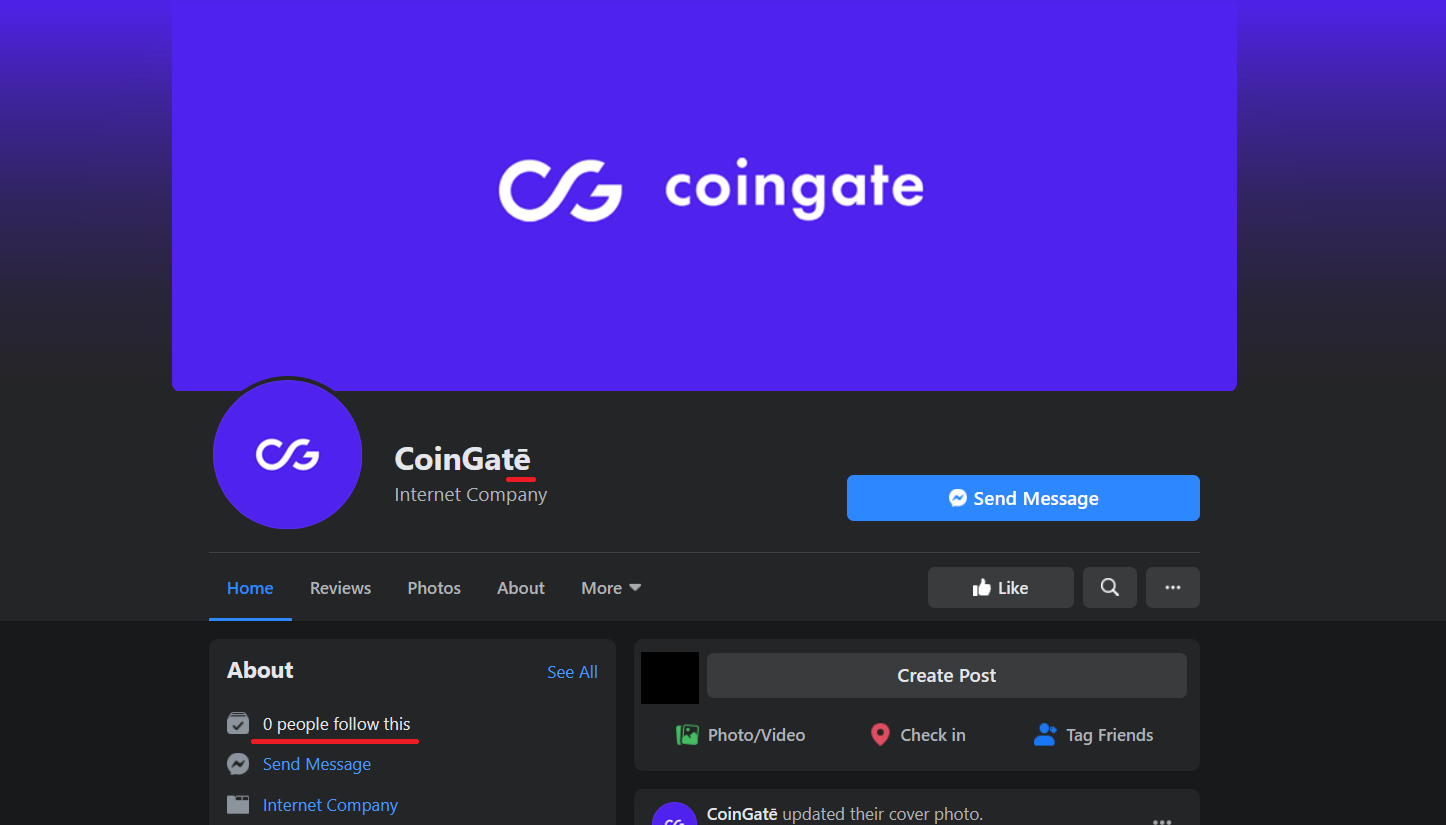
Such profiles can be easily spotted as they show several red flags as soon as you click on them (i.e., zero followers, weird/incorrect spelling, sketchy posts on timeline, etc.).

2. Scammer(s) also create multiple other fake accounts that try their best to imitate real users.
3. The fake business account comes to the real CoinGate’s Facebook page and starts posting details of lucrative yet fake deals (i.e., transfer the random amount to a particular address and get more money in return). This behavior is called phishing.
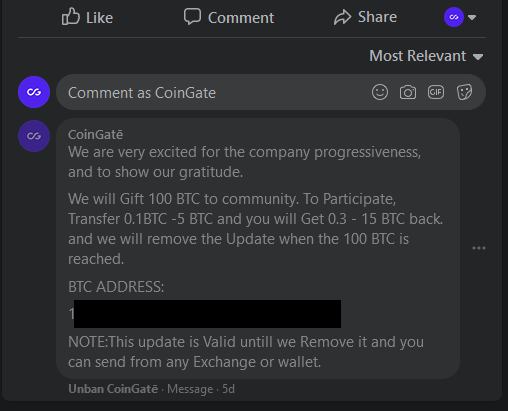
4. All the other fake accounts gather to praise the fake promotion, like each other’s comments and encourage outsiders to follow the lead and participate.
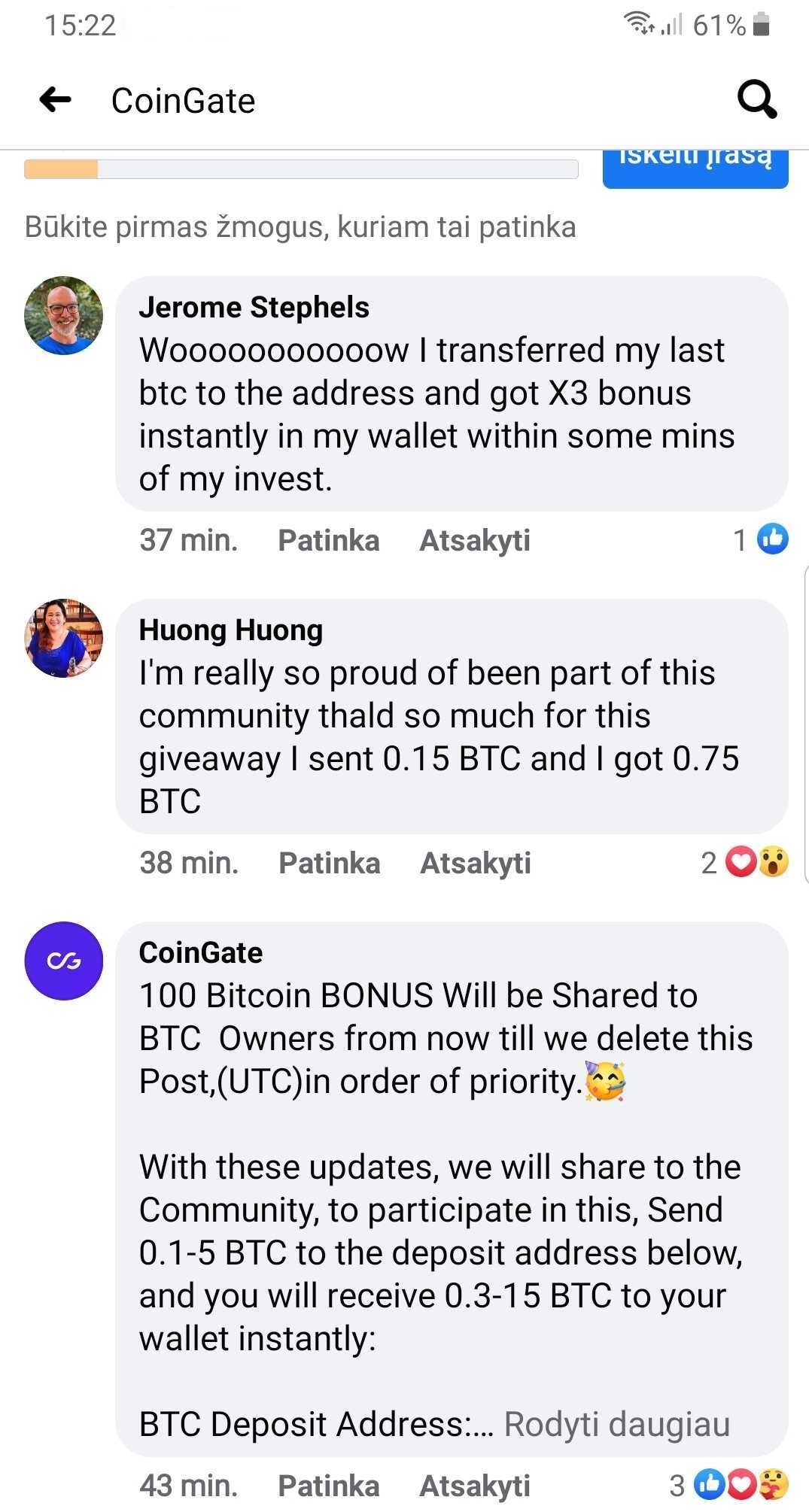
In fact, scammers of the infamous Twitter hack from July 2020 used a very similar method. But instead, they targeted and compromised 45 accounts, including famous people like Elon Musk or Barack Obama, and started tweeting similar promotional messages that ended up being a bitcoin scam.
Luckily, there has not been a single reported case of people falling for this type of fraud in our experience. Besides, our team always reacts fast to deal with such spam messages, so it’s unlikely you will ever get to see one.
Phishing attempts via email
If a fraudster suspects that you own crypto (although, not necessarily) and is able to get your email address, there’s a chance that one day, you will receive an email like this (click to enlarge):
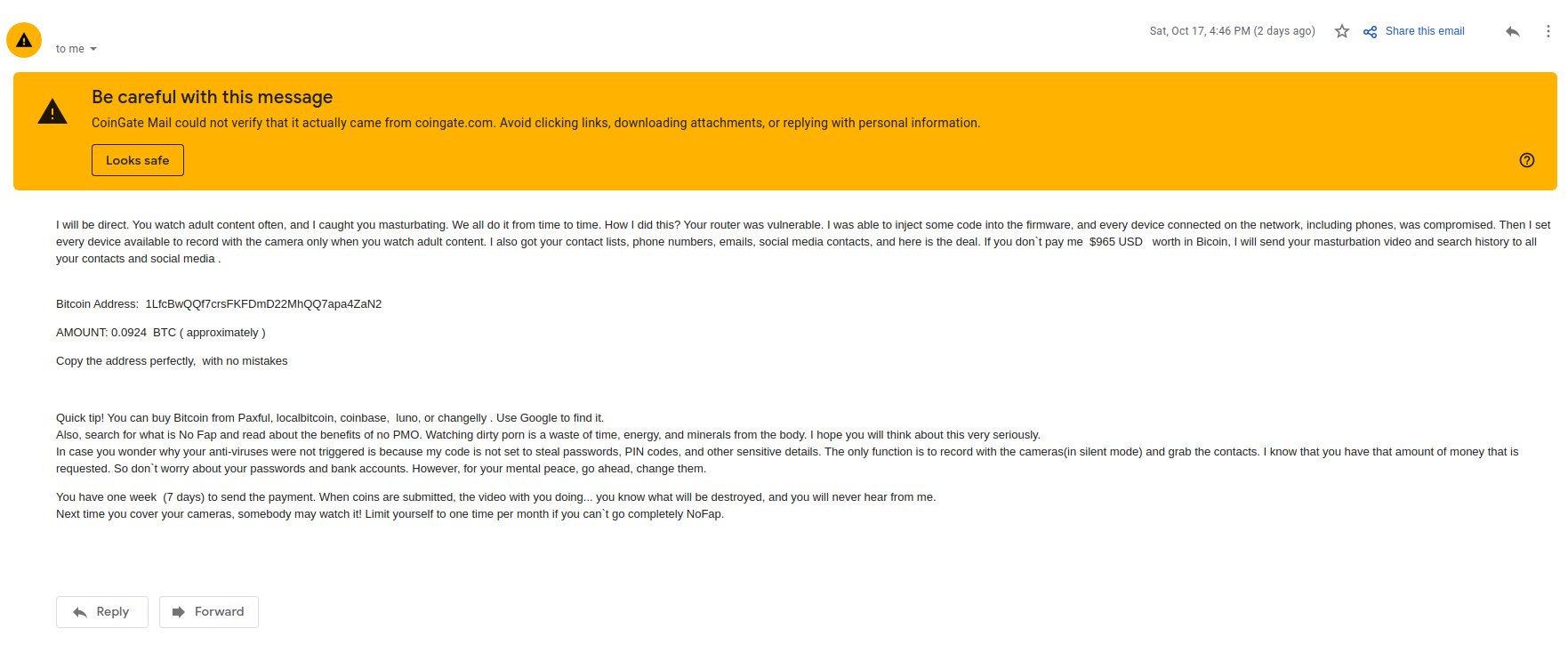
Although such emails vary in content, ultimately, they all try to achieve the same thing – extort bitcoin out of susceptible people’s wallets by tricking them with lies, intimidation and false threats. But by doing a quick bitcoin address lookup, we see that this particular scammer was not successful with his phishing campaign.
Suppose you get a blackmail email like that. In that case, it doesn’t necessarily mean that you are being targeted selectively – hackers tend to use email lists found on the Internet, leaked along with your passwords by some 3rd party service that you were using in the past.
That is why a bit more sophisticated phishing emails might include one of your leaked passwords as “proof” that you’ve been hacked (check here whether your email address has been compromised at any time).
However, They also might contain malicious links or attachments, which you obviously should never click on.
Fake bitcoin scam websites
In June 2019, we spotted a site that seemed to be a new cryptocurrency exchange platform. However, it had the same company name, terms & conditions, links to our social media channels and many more red flags.
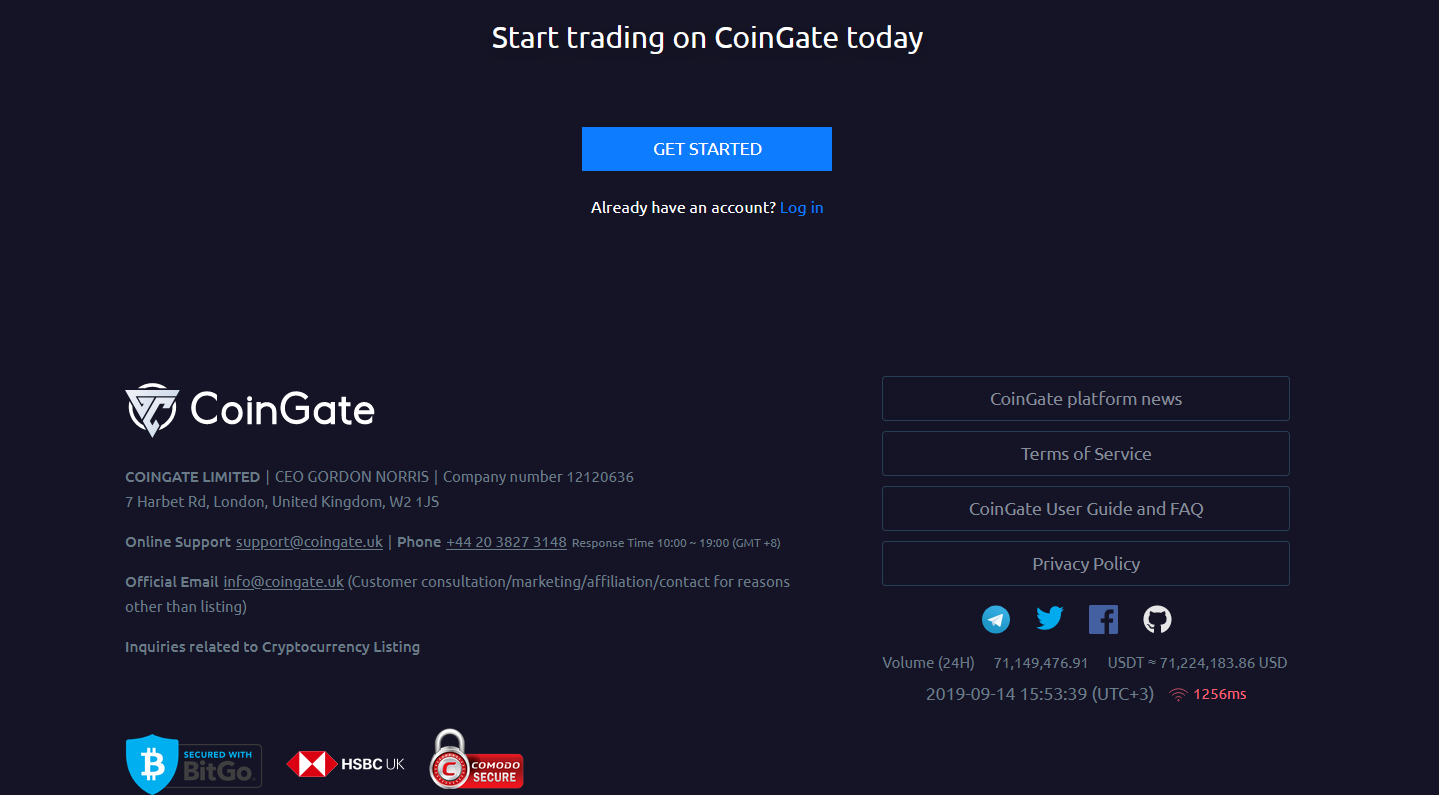
As our trademark is registered and protected under European Union Intellectual Property Office (EUIPO), it meant that the company had no right to operate under the same name, let alone use our social media presence as their own.
Nonetheless, as the website continued to develop, the interface became more sophisticated and thus believable, even though it was, in fact, fake. We immediately took all the necessary measures to solve the issue, but the site remained running for a while, resulting in a few people taking the bait and expressing their anger on our company’s Trustpilot profile.
The trick was simple – a person creates an account, deposits BTC to a fake exchange and never gets to withdraw it back or make any other actions.
Eventually, both the website and all social media channels were taken down. The moral of the story is, always do your own due diligence before sending money to unverified services.
The least you can do is a simple Google check to determine the level of shadiness. Or see the website itself for things out of the ordinary that could indicate it’s a scam.
One way or the other, carefulness, common sense and attention to detail might be all it takes to go around another bitcoin scam.
If you want to learn more about how to protect yourself and your crypto holdings online, jump to this article.
Follow us on Twitter or subscribe to our blog down below to get the latest news and updates right off the bat!
Accept crypto with CoinGate
Accept crypto with confidence using everything you need in one platform.

